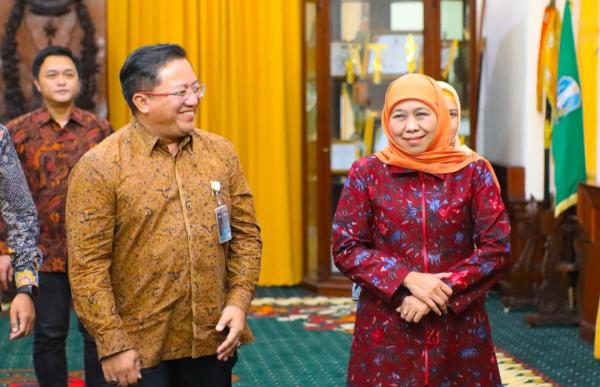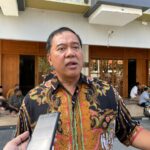SURABAYA – Khofifah Indar Parawansa has called for collaboration to strengthen the presence of Red and White Village/Sub-District Cooperatives (KDMP) in communities. This step is considered crucial for shortening the supply chain and ensuring availability at the village level.
Currently, there are 8,494 officially established KDMPs across 38 regencies/cities in East Java, all with legal status. According to Khofifah, the next challenge is to strengthen human resource management, logistics distribution systems, and cooperative business models to ensure independence and sustainability.
“These cooperatives are a symbol of economic strength from, by, and for the villages. We want to ensure a stable supply of staple goods directly from Bulog, without multiple intermediaries,” emphasized Khofifah on Sunday (20/7/2025).
Khofifah also urged expanding collaboration with Bulog to handle other strategic commodities such as fertilizer and LPG, involving relevant state-owned enterprises.
Under the new distribution scheme, Bulog supplies staple goods directly to retail markets, verified stalls, affordable food programs, and KDMPs. This mechanism is considered effective in curbing price spikes and preventing hoarding or supply diversion.
“This is not just an economic program but also a form of collective social welfare. We want villagers to access affordable staple goods. I aim for all KDMPs to be fully operational by December this year at the latest,” Khofifah explained.
Red and White Village/Sub-District Cooperatives
The “Red and White Village” or “Sub-District Cooperatives” typically refer to community-based cooperatives in Indonesia, often linked to local economic empowerment and nationalistic values (symbolized by the red and white of the Indonesian flag). These cooperatives aim to promote self-sufficiency, small business development, and collective welfare, rooted in Indonesia’s post-independence cooperative movement. While specific histories vary by location, many such cooperatives emerged in the mid-20th century as part of efforts to strengthen rural economies under socialist-inspired policies.
Bulog
“Bulog” (Badan Urusan Logistik) is an Indonesian state-owned logistics company established in 1967 to manage food security and stabilize the prices of essential commodities like rice. It plays a key role in distributing subsidized food to the public and maintaining national food reserves. Over the years, Bulog has expanded its operations to include the management of other staple goods and agricultural products.
East Java
East Java, a province in Indonesia, is known for its rich cultural heritage and stunning natural landscapes, including active volcanoes like Mount Bromo and the scenic Ijen Crater. Historically, it was home to the powerful Majapahit Empire (13th–16th century), one of Southeast Asia’s greatest Hindu-Buddhist kingdoms, whose influence spread across the archipelago. Today, East Java blends ancient traditions with modern development, offering vibrant cities like Surabaya, historic temples such as Penataran, and diverse cultural festivals.





